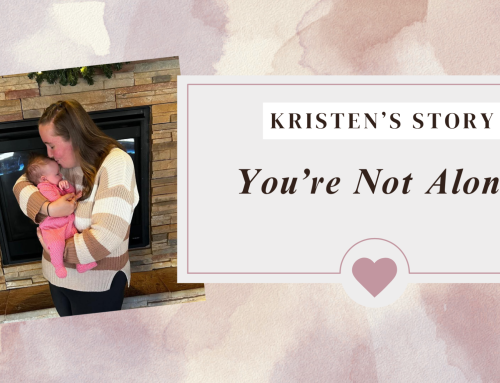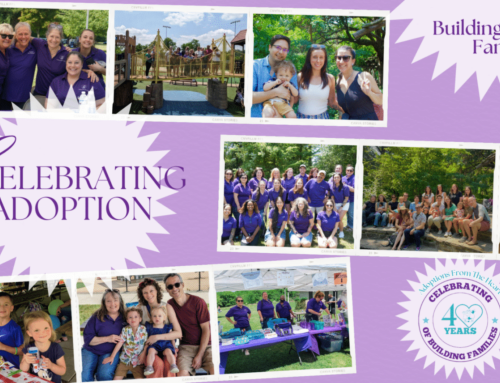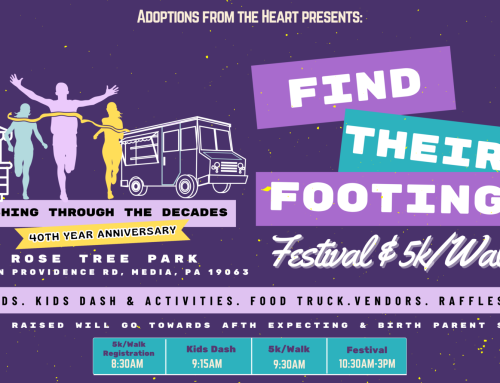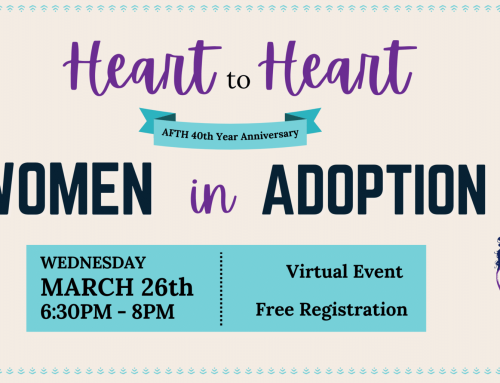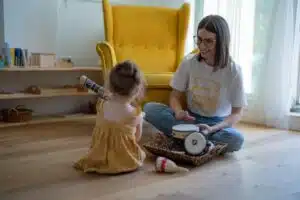 Adoptions From the Heart recently sat down with adoptee and adoption social worker Jackie to discuss the evolution of adoption and the trajectory many agencies have witnessed since the beginning of the COVID-19 pandemic. Adoptions From The Heart has always labeled itself as a domestic infant adoption agency. However, over the last few years, we’ve seen an increase in expecting parents and those already parenting, seeking older child placements for children older than what would be considered an infant. As the years have come and gone, 2023 has been no different, so as an agency, we feel it would be helpful to understand these unique placements and gain insight from a social worker’s perspective.
Adoptions From the Heart recently sat down with adoptee and adoption social worker Jackie to discuss the evolution of adoption and the trajectory many agencies have witnessed since the beginning of the COVID-19 pandemic. Adoptions From The Heart has always labeled itself as a domestic infant adoption agency. However, over the last few years, we’ve seen an increase in expecting parents and those already parenting, seeking older child placements for children older than what would be considered an infant. As the years have come and gone, 2023 has been no different, so as an agency, we feel it would be helpful to understand these unique placements and gain insight from a social worker’s perspective.
“It is important to understand what older child placements are,” Jackie explained. “An older child placement, I would describe, is a placement of a noninfant six months or older. Most commonly, the referrals are six months to 6 years,” she said. In the older child placements that Jackie has been a part of, the children were two, five, and two and a half years old. Historically, most placements that Adoptions From The Heart help facilitate are newborn cases. However, most recently, AFTH social workers and other agencies are seeing increases in unique cases, like Jackie, who is currently working with a birthmother parenting a 19-month-old and is strongly considering an adoption plan.
The process for placing an older child differs significantly from those involving a newborn or a process that has been in operation from the beginning. “Placements of older children are much more of a transitionary process, “Jackie said. “Prior to identifying adoptive parents, extensive options counseling is done with the birth parents. Depending on the child’s age, we will have the birth parents sign a HIPPA allowing us to obtain pediatrician, dental, and school records. Once the birthparents find a family they feel connected to, there is a meeting with the birthparents, the child, and the adoptive parents in the office.”
She adds, “The second meeting will occur in the community depending on the child’s age. They could go to a trampoline park, an arcade, minigolf, or a park and spend the day with one another. This could occur multiple times. After, we would plan an overnight visit with the adoptive parents and the child. The last step would be the day of placement, which would likely happen in the office.” 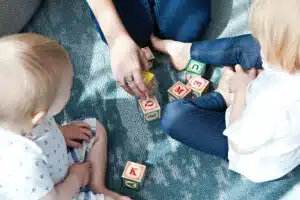
Jackie mentioned that the one thing that stays consistent about Adoptions From The Heart, between newborn placements and older child placements, is the support you receive from your social workers and adoption counselors. “They help you through every step of the adoption process, and the support does not end there. After placement, your social worker will do monthly in-person visits for six months and then another during a 6-month supervisory period. We are still here to talk, vent, discuss issues, talk with the child, etc. Children need to be talked to and counseled about adoption planning by their biological family and me as the social worker,” Jackie explained.
Adoptions From The Heart prides itself on options counseling and support for all adoption triad members. We asked Jackie to share ways she helps her clients feel supported as their social worker.
“I help my clients feel supported through counseling sessions that take as long as they need to as often as they need to. If I need to meet them in their community, or they would prefer to come to the office—I do whatever is best for them. In terms of support, I have helped with transportation to doctor appointments, helped them apply for Medicaid, and helped to locate shelters or clinics that can help them if they are currently struggling with addiction.”
Jackie mentioned that working with these families from the start was an honor, and watching them build their families has been a pleasure. As an adoption social worker, she has been a support person during labor and helped support and facilitate meetings with the adoptive family and child. “We are here, in the moment and years to come. Supporting my adoptive parents includes check-in, zooms, and phone calls—support and guidance through the home study process, waiting period, placement, and finalization,” she said.
One of the distinguishing factors of Adoptions From The Heart is the no-judgment counseling that’s offered. Jackie shared with us the importance of blocking out the opinions of others throughout the adoption placement process. “Whatever is best for the individual I am working for is best for me, no judgment involved. Some community members express their opinions on adoption and birth parents, which can be very hurtful. We are not here to push any opinion; we are here to do options counseling and best support each person during this extremely difficult decision.”
She continued, “It is important to talk birth parents through all their options. Discovering what support they lack and identifying solutions can be essential in a birth parent’s decision.”
Something one may take into consideration when a birth parent wants to place an older child is the opinion of the rest of the family or loved ones and how this might affect the birth parents. Jackie has dealt with situations in the past in which loved ones were not supportive of the idea of placing the child for adoption and recalled how it affected the birth parents and the adoption process as a whole. “It added to the stress, anger, and guilt that they would feel. In some instances, family members would threaten to cut the birthparent out of their lives or kick them out. Placement is not a plan one comes to without really thinking about it first. Adding layers of disapproval and threats from those you love is devastating. Loss, grief, anger, and self-deprecation are associated with making an adoption plan, and adding in the loss of family members is just another layer of pain,” said Jackie.
Although every adoption process is different, unique placements, including those of older children, may have uncertainties. We asked social worker Jackie what one can guarantee in the case of older child placements, and this was her response.
 “One thing you can guarantee is that it will be much more of a process over a longer span of time. It could take a few months before placement day occurs. We want to ensure this is best for the child; that is our main concern. With that, many factors must be considered before placement day. It is important to understand that although this is a joyous moment, it is also traumatic. Behaviors and techniques are going to be key to understanding and utilizing.”
“One thing you can guarantee is that it will be much more of a process over a longer span of time. It could take a few months before placement day occurs. We want to ensure this is best for the child; that is our main concern. With that, many factors must be considered before placement day. It is important to understand that although this is a joyous moment, it is also traumatic. Behaviors and techniques are going to be key to understanding and utilizing.”
On the other side of the spectrum, Jackie has worked with families who come with extended families who strive to be a robust support system for the birth parents during this difficult time. She shared that the most critical thing loved ones can do to show their support during this challenging time is to educate themselves. Ask the parents what support they need. “One moment, it could help with organizing a family event. Others could be bringing over some easy dinners they can heat up, recommending activities beneficial for them and their children, offering to host a playdate, etc.”
Jackie adds, “In offering advice to clients who are currently going through the adoption process or are considering adoption placement for an older child, as someone who has been a part of older child placements in the past, you have to remember that it is going to take time. It will be a transitionary period, and we must find what is best for the child, birth parents, and adoptive parents—identifying services within your area, for example, therapy. Lean on your social worker and reach out if you have questions or need help identifying those services in your area. We are here to help you during placement and years after.”
If you or someone you know is considering older child placement, contact Adoptions From The Heart 24/7 at 1-888-630-8842 or online at AFTH.ORG.

